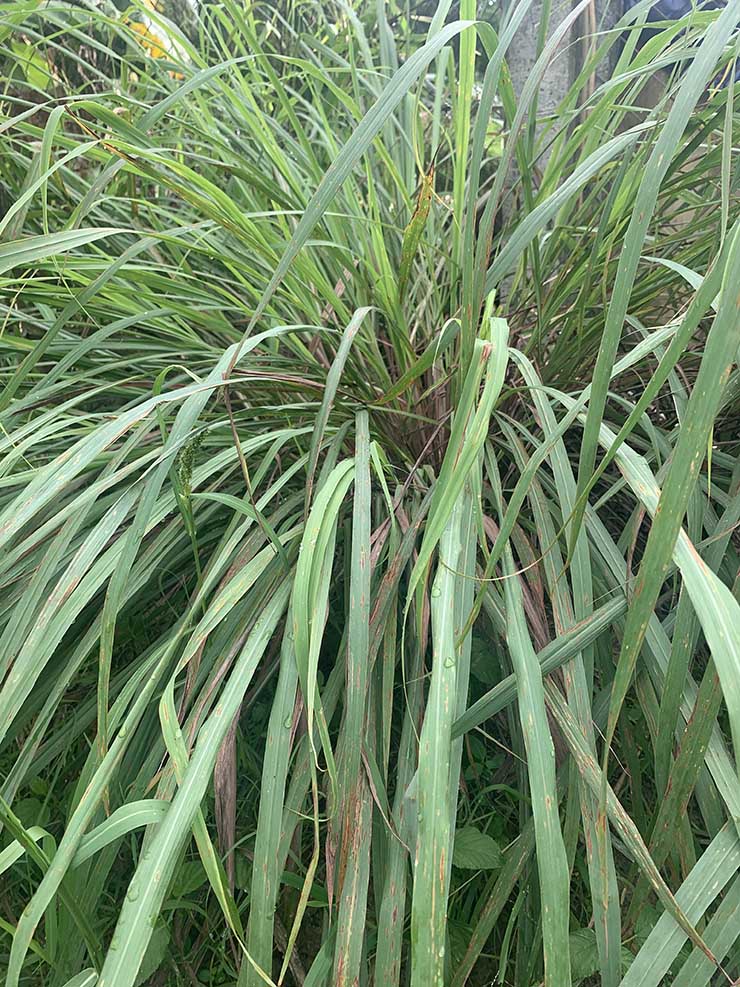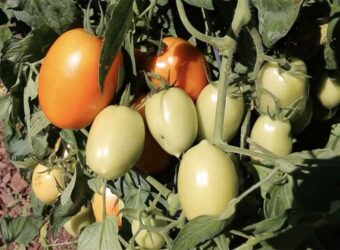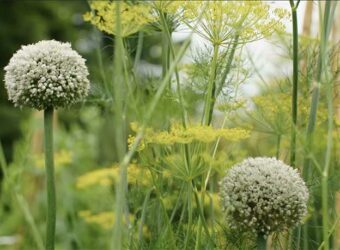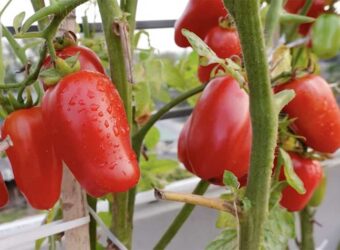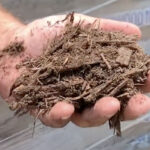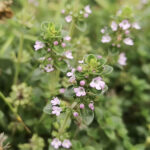Lemon grass is used a lot in Asian food. In addition, lemon grass is used in many home remedies. It has a nice scent, as well. There are companion plants that benefit from growing near it and others that help lemon grass grow better.
Why Does Lemon Grass Need Companion Plants?
Here are the ways companion plants work with Lemon Grass.
Repel Insects
Lemon grass repels many insect pests, such as aphids, whiteflies, mosquitoes, and more. Many plants that grow well with lemon grass also repel insects, such as marigolds and mint. Grown as borders around vegetable gardens, they repel pests and protect your fruits and vegetables. Other plants, like echinacea and tomatoes, need lemon grass to protect them from insects.
Bring Pest Predators
Some plants, like marigolds, bring pest predators such as hoverflies, lacewings, and predatory wasps to the area. These insects eat any pests that may bother lemon grass.
Grow Well Together
There are many herbs that grow well with lemon grass because they need similar levels of light, water, and nutrients. Mint, lemon verbena, marigolds, and cilantro are examples of these herbs.
Top 15 Best Companion Plants for Lemon Grass
Here are the top fifteen companion plants for Lemon Grass and what they do to help grow good crops of Lemon Grass.
Mint
Mint and lemon grass need the same amount of light, water, and nutrients, so they grow well together. Mint also attracts pollinators to the garden and predatory insects, protecting lemon grass from pests and improving pollination for the whole garden. Mint can be invasive, so should probably be grown in a pot next to the lemon grass. Remember that lemon grass is a large plant, so allow enough room for it near the mint.
Basil
Basil is a delicious herb that falls prey to several insects. Lemon grass repels these insects. While purists do not let their basil bloom because it reduces the essential oils in the leaves, the blooms attract pollinators to the whole garden. Plant lemon grass in the same row as basil or in adjacent rows for the best results. Remember that both basil and lemon grass grow to be large three- or four-foot-tall plants, so don’t plant them too closely together, or they will interfere with each other.
Lemon Verbena
Lemon verbena shares a wonderful lemon scent with lemon grass. It also needs the same amount of light, water, and nutrients, so is well-planted next to lemon grass. You can put pots of mixed lemon grass and lemon verbena on either side of your doors to repel mosquitoes and flies and keep them from entering your house.
Ginger
Ginger is grown for its roots. Unfortunately, ginger is vulnerable to aphids, mites, and thrips, which can devastate your ginger plants. Lemon grass will repel these insects and protect your ginger plants, so you have a good harvest. Ring the ginger plants with lemon grass, but be sure the lemon grass doesn’t shade the ginger too much.
Marigolds
Both marigolds and lemon grass repel insects that eat other plants. In addition, marigolds attract hoverflies and parasitic wasps that prey on harmful pests. Intersperse marigolds and lemon grass around the outside of your vegetable garden to stop harmful insects and attract helpful ones. Alternatively, mix marigolds and lemon grass in the same rows as vegetables to protect them.
Echinacea
Echinacea suffers from insect pests that eat the blooms, which are used in traditional medicine to treat colds. Lemon grass repels these insect pests, so protects the echinacea blooms. Plant lemon grass in the same row as the echinacea or in the row next to the echinacea for the best results.
Peppers
Aphids and pepper weevils love peppers as much as we do. Lemon grass repels both of these pests, protecting the peppers from them. Plant lemon grass around your pepper plants in the same row or in adjacent rows for the best results.
Tomatoes
Lots of insects love tomato plants and tomatoes. Growing lemon grass with your tomato plants will help repel all these insects. Ring your tomato plants with lemon grass or grow it in the next row over to provide the best protection for your tomatoes.
Tomatillos
Tomatillos, like tomatoes, have lots of pests that like to eat them. Lemon grass will repel these pests, especially aphids and tomato hornworms. Plant lemon grass in the same rows as your tomatillos to get more of these delicious fruits to eat.
Bee Balm
Bee balm is a funny-looking herb used in traditional medicine. It needs similar conditions in the garden to lemon grass. You can plant lemon grass and bee balm next to each other in a landscape bed or in adjacent rows in a vegetable garden. Bee balm attracts pollinators to your garden.
Cilantro
Cilantro grows well with lemon grass because they both need the same amount of light, water, and nutrients. Planting them together makes it easy to care for both of them. In addition, cilantro, like lemon grass, repels insects from more vulnerable fruits and vegetables. Grow lemon grass and cilantro as a border around the outside of your vegetable garden for the best results, or mix them in the same row.
Hops
Hops are the plants that flavor beer. Lots of home brewers grow their own hops. The part that goes in the beer is the flower of the female plant. Lots of insects like hops and will eat the plant and the flower before it is harvested. Lemon grass repels these insects so that you get to harvest your hops. Grow lemon grass in the adjacent row or mixed in with the hops plants for the best results. Both plants get large, so allow enough room in the row for both of them.
St. John’s Wort
St. John’s Wort grows well near lemon grass because they need similar levels of light along with similar amounts of water and nutrients. Lemon grass repels any insect pests that would eat the St. John’s Wort, too. Plant St. John’s Wort around lemon grass or in between the rows of lemon grass for best results.
Limes
Limes provide some shade to lemon grass during the heat of the day. Lemon grass repels some citrus pests from the lime trees. Plant lemon grass near the lime trees, but remember that lemon grass can get large on its own, so in adjacent rows is better than being too close to the trees.
Goji Berries
Goji berries are used in traditional medicine. They need similar levels of light, water, and nutrients to the lemon grass, so they grow well together. Lemon grass also repels some insect pests from the goji berries.
Top 5 Worst Companion Plants for Lemon Grass
Just as there are some plants that grow well with lemon grass, there are some that should be kept separated.
Lavender
Lavender likes drier soil than lemon grass can tolerate. If lemon grass gets the right amount of water, lavender planted next to it will get root rot. Without more water than lavender likes, lemon grass will dehydrate and die.
Thyme
Like lavender, thyme needs to dry out between waterings. If you plant lemon grass near thyme, lemon grass will be too dry and will die. If lemon grass gets enough water, it stunts and ultimately kills the thyme.
Fennel
Fennel secretes a chemical into the soil that kills other plants. It needs to be planted in a corner of the garden with no plants around it. Lemon grass will not grow around it, so separate fennel from fennel by two or three feet.
Rosemary
Rosemary gets very large and can shade out lemon grass. In addition, rosemary needs arid soil to grow well. Since lemon grass needs more water, either the rosemary will get root rot, or the lemon grass will dehydrate and die.
Sage
Like rosemary, sage is from an arid climate and can grow quite large. Plant the plants that need more moisture together and plant the ones like sage, rosemary, lavender, and thyme together so they can dry out between plantings.
In conclusion, lemon grass repels insects from many plants that grow well with it, such as basil, echinacea, and tomatoes. Lemon grass can be grown as a border around vegetable gardens to repel insects from your vegetable garden. Many aromatic herbs grow well with lemon grass, like chamomile and mint. However, some that smell good and also repel insects need drier soil than lemon grass, so should not be planted around them, like lavender, sage, and rosemary. Fennel doesn’t make a good companion plant with any plant, so don’t plant it near lemon grass.
